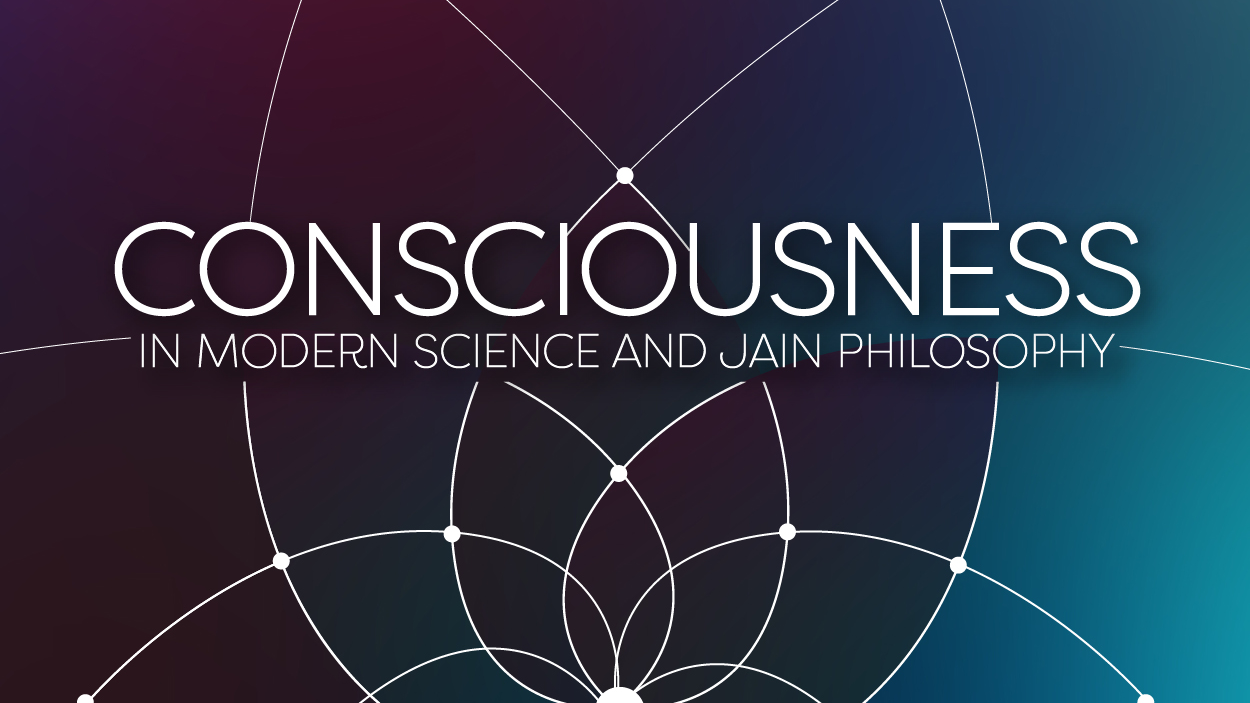How does the spiritual meet the physical? Is consciousness linked to the soul? These are some of the questions explored at the Second International Conference on Science and Jain Philosophy (ICSJP), a collaborative virtual event between the Steven J. Green School of International and Public Affairs , the Jain Education and Research Foundation , the Federation of Jain Associations in North America and the UC Davis Jain Studies Program .
“The theme of this conference … is intended to connect scientists working on the interdisciplinary field of consciousness studies to scholars of the Jain religious tradition,” said ICSJP Director Dr. Samani Chaitanya Prajna in her welcome address.
This virtual conference was held from 19-22 March 2021 via Zoom and streamed on Facebook Live attracting more than 10,000 delegates from 27 countries including the USA, UK, India, Tanzania, Canada, Russia. It included 45 paper presentations, a book launch and panel discussion. The conference was inaugurated by the Honorable Ambassador of India to the United States — Mr. Taranjit Singh Sandhu — who said that Jain philosophies and ethical precepts have much to teach the youth of today and can help us to create a more harmonious future.
ICSJP II examined diverse aspects of consciousness found in Jain philosophy, such as the nature of consciousness, exploring the ideas of sentience beyond our conventional understanding, and the effects of spiritual technologies such as meditation, fasting, penance (pratyakhyana), and repentance(pratikramana). The conference brought spiritual mentors from all four Jain traditions on a single platform, a first in an international academic conference.
Professor Munishri Mahendra Kumar, of the ISOL Foundation, explained the idea behind the ICSJP series of conferences, stating that it was important to conduct scientific research on consciousness and connect scientists with theologians and practitioners to create a more peaceful world. For example, presentations on veganism connected the evolving ethics of animal rights to the Jain principle of ahimsa (non-violence). As our current economic system is critiqued through the global climate crisis, Jain ideas of sustainable economic development can help us to develop new models of international commerce to benefit the planet and sustain it for future generations. Additionally, Jain meditations and philosophies of consciousness can provide new avenues for scientific research in the future.
“There is often an equivalence posited between consciousness and sentience, or subjective awareness and the ability to have a mental experience of pain and suffering,” said Gary Francione, distinguished professor of law at Rutgers University Law School. “That equivalence would be justified in most systems of Western philosophy, but that equivalence is not justified in Jainism.”
Padmavibhushan Dr. R.A. Mashelkar delivered the keynote address. He encouraged the participants to recognize the value of Indic philosophies, such as a Jainism, as world heritage and a source of wisdom for humanity. The chief valedictory guest was Dr. Gulab Kothari, Editor-in-Chief of Rajasthan Patrika.
Eminent attendees included author and biologist Dr. Rupert Sheldrake, space scientist Prof. Narendra Bhandari, and Jain scholars Prof. Christopher Chapple and Prof. Jeffery Long.
Recordings of the conference can be viewed on the conference website .
The conference was co-sponsored by Federation of Jain Associations of North America (JAINA), Jain Vishva Bharati (Ladnun, Orlando, New Jersey, Houston, and London), Mohini Jain Presidential Chair in Jain Studies at University of California, Davis and Vardhamana Charitable Foundation. Jain Academy of Scholars, Ahmedabad, Spiritual Technology Research Foundation, Mumbai and World Jain Confederation, Mumbai were knowledge partners.
